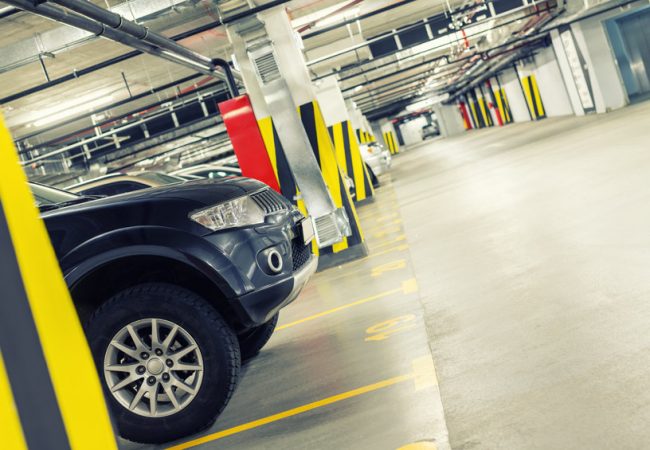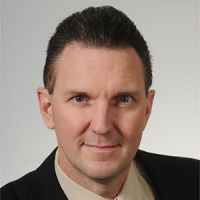Read the Report
Read the Column
FINANCIAL POST COLUMN: City council rules – buses for thee, free parking for me

“A bus pass for thee, a free parking pass for me,” is apparently the unofficial climate motto for a number of city councils in Canada, new research by SecondStreet.org shows.
Despite declaring “climate emergencies,” urging the public to get out of their cars and take transit, and calling for the phase-out of natural gas, 19 Canadian cities have handed out over 5,400 free parking passes to city council members, city staff and other politicians.
To be clear, giving elected officials and staff free parking passes is not terribly controversial. Many private businesses provide senior executives and staff with free parking.
But considering that many elected officials have been declaring “climate emergencies,” taking free parking passes at the same time is a contradiction, to say the least. Free parking encourages driving to work — the very activity cities have been trying to get the public to avoid.
When Calgary elected a new city council in 2021 one of its first major orders of business was to declare a “climate emergency.” Vancouver, Edmonton, Montreal and many other cities across Canada had already declared such “emergencies.”
Yet, City of Calgary data show the city is quite generous with the free parking passes it hands out — 1,072 free passes in 2020 alone. In addition to parkade passes, city council members also receive special “Park as Required” cards that allow them to park at metered parking spots for free anywhere in the city. Maybe the new council will cut the passes now that there’s a climate emergency?
In Ontario, 33 cities have called for phasing-out natural gas-powered electricity. The emissions from natural gas are a fraction of what coal-power plants emit, yet the relatively clean fuel source is still in the crosshairs of activists and some politicians. In the meantime, many of these same cities have been handing out thousands of free parking passes.
The City of Toronto gave out 1,267 free parking passes. In 2019, media reported that the city had even been providing free parking passes to former city staff.
Hamilton, Mississauga and Burlington gave out over one thousand passes combined. St. Catharines not only gave free passes to all council members, it also provided free passes to provincial and federal politicians, as well as the president and vice-president of Brock University.
Winnipeg’s city council, which represents one of the coldest cities on the planet, wants to completely phase out natural gas — a key energy source for home heating and industrial usage. Within hours of city council’s musings on the idea, Manitoba Hydro, the province’s power utility, confirmed this was not remotely feasible anytime soon. It turns out the frigid prairie city also gives out hundreds of parking passes each year.
Victoria, the greenest city in Canada (at least according to Victorians), was arguably the worst offender in the country. It gave out 173 free parking passes in total, including 97 for politicians – most don’t even live in Victoria. Even Green Party MP Elizabeth May received one.
To be clear, it’s important for city governments to discuss reducing emissions. However, many governments would be wise to shift their climate discourse from impractical bravado to realistic solutions. Canada is a cold, vastly spread-out country that requires great amounts of energy to generate heat in the winter and transport people and goods over long distances.
Solar and wind power are welcome technologies — consumers benefit when there’s more competition for energy production. But the wind doesn’t always blow and the sun doesn’t always shine. Weather-dependent energy sources need back-up power options such as natural gas — a source in which Canada is a leader.
Again, it’s fine for cities to encourage the public to take transit, ride bicycles and think about how city policies could be designed to help reduce emissions. But that message loses its credibility when those pushing it are parking for free.
Colin Craig is president of SecondStreet.org, a public policy think tank.
This column was published by the Financial Post on June 28, 2022.
You can help us continue to research and tell stories about this issue by making a donation or sharing this content with your friends. Be sure to sign up for our updates too!

Walter Robinson
Director
Walter Robinson was was born and raised in Toronto and has lived for over 30 years in Ottawa where he earned an Honours Bachelor of Commerce degree from Carleton University. His public affairs career has included progressive roles of leadership in the public, private and not-for-profit sectors.
He has served as the Federal Director of the Canadian Taxpayers Federation, sought federal public office as a MP-candidate and participated as member of PM’s debate team twice, was the Chief of Staff to the Mayor of Ottawa, and presently runs his own public affairs consultancy with a focus on the life sciences ecosystem (the pharmaceutical sector, patients organizations and health charities).
Walter has been accorded several civic honours for his diverse record of community service which is punctuated by his passion for governance roles in health systems delivery and three decades of fundraising for leading-edge cancer research.


